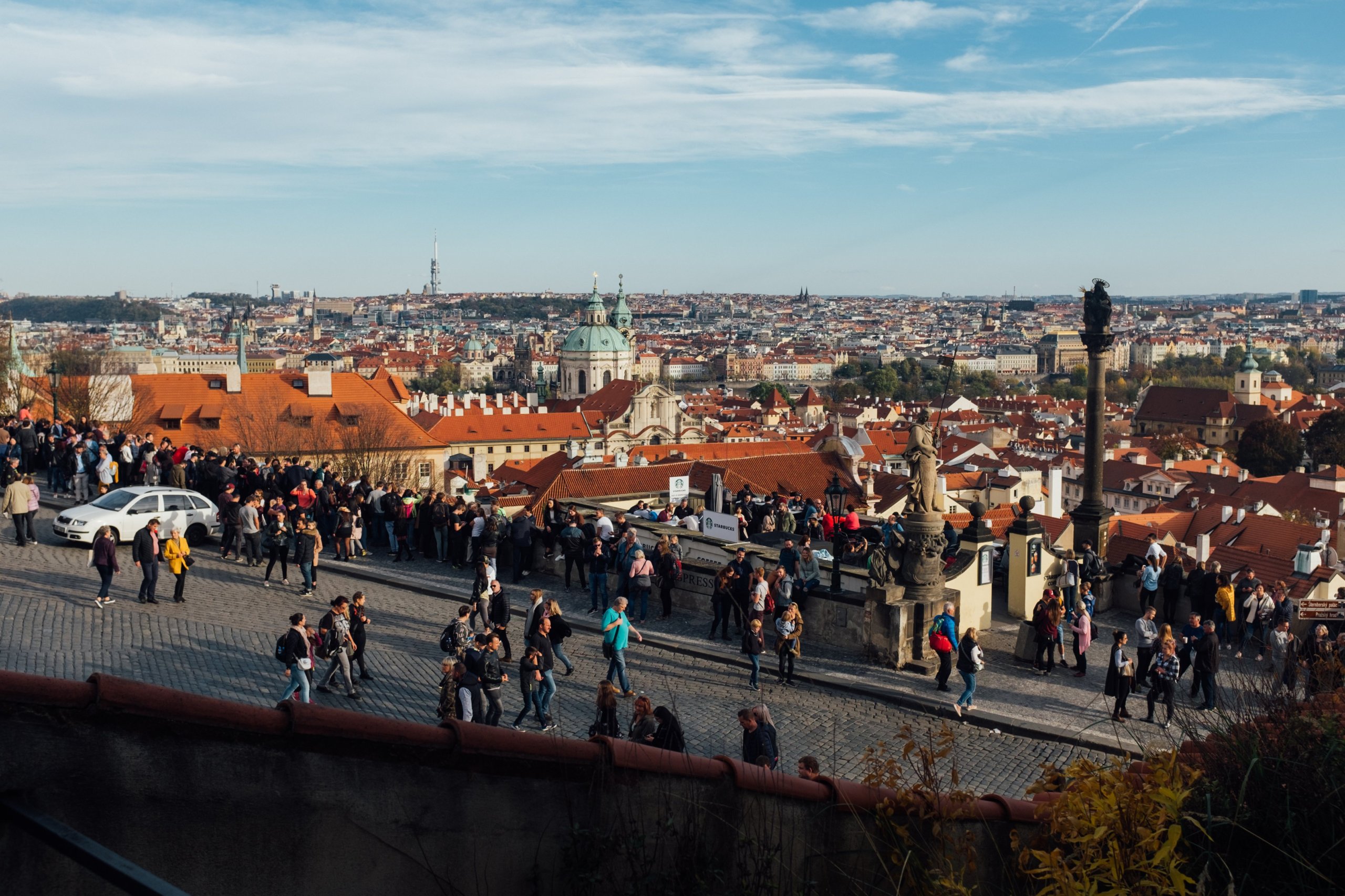
The busy summer season is winding down. However, this doesn’t mean you can’t attract visitors in your shoulder season. In fact, marketing to locals or people within ~50 miles of your destination can often lead to a sizable revenue boost in an otherwise slow team.
With just a few tweaks to your marketing strategy, it’s a travel trend you can capitalize on.
In this post, we’re sharing 13 marketing tactics to help you attract more locals to your tours and activities.
1. Get to know your local customers
As your target audience shifts, it’s time to get to know your new customers. Understanding what local and domestic tourists are looking for in a tour or activity will be the foundation of your new marketing strategy. Local customers may have different interests, requirements, and concerns than international guests.
For example, a local guest is likely more interested in visiting lesser-known places than a city’s main attractions.
The more you get to know your local guests, the better you’ll be able to concentrate your marketing efforts on the experiences that appeal to them.
2. Connect with your local tourism board
Consider reaching out to the local tourism board of your target market. Perhaps there are ways in which you can work together to collectively increase local tourist traffic.
You can start by taking a look at their website to check out their local tourism initiatives. Perhaps your company can partner with them for a local campaign. You should also look to see if they’re doing any seasonal promotions so that you can align your own marketing strategy with theirs.
3. Offer a local discount
Offering a residency discount or coupon code is a great way to attract more locals to your tours, like how Disney offers discounted tickets for Florida residents.
Local tourists who have suffered pay cuts or unemployment during the pandemic will be looking for really good deals to spend money on entertainment. Offering locals a discount can not only help support your community but also bring in new customers.
Pro Tip: Here is how to create a coupon or voucher within Xola.
4. Tailor your experience to a local audience
If you are accustomed to attracting international tourists, it’s time to think about what would excite a local. Rather than approaching your city as a tourist destination, consider what makes it special from the eyes of someone who calls it home.
For example, if you’re a bus tour operator who typically takes international tourists to your city’s major attractions, perhaps introduce a “hidden gems” tour catered to locals.
This new tour could stop at local businesses that are less mainstream but just as interesting. Or you could introduce a historical tour that lets local guests connect with their town’s history.
5. Market your tours in local media
Consider a new marketing campaign focused on local media. Reach out to local newspapers, magazines, tv stations, and local social media influencers to see if they’re interested in writing about your business.
You can send out a press release about your company, particularly highlighting your new tours or activities.
6. Partner with local influencers and bloggers
Your city’s influencers and bloggers are likely seen as destination authorities: They know what’s in, what’s new, and what’s going on in their city. Their followers often look to them for inspiration for every kind of social activity, from where to go for dinner to what to do on the weekends.
When you partner with a local influencer or blogger, you’re increasing your company’s visibility to their entire following. Lifestyle and travel influencers, in particular, have focused on showcasing their hometowns over the past year, and their followers likely trust their recommendations
7. Focus on your location in your SEO strategy
Make sure you’re including your location in your target keywords for search engine marketing (SEO).
Local tourists will be searching for things to do in their own neighborhood, city, and state until regular travel bounces back. Keep your company relevant with the smart use of local keywords in your SEO.
8. Target a local audience with your Facebook ads
Use Facebook’s geographic targeting features to reach local guests with your ads. You can target potential guests living within a specific mile radius of your city or your state as a whole.
Before launching a new ad, make sure it appeals to a local audience. Show them something they don’t know about their city or state, or paint your attraction as the long-awaited quarantine escape they’ve been looking for (without having to get on a plane).
9. Use social media to reach local customers
Social media marketing is a great way to reach more locals, too. If you don’t already have social media pages for your business, it’s time to set one up. Facebook and Instagram, for instance, are great platforms for local businesses because they can include important visitor information like location, phone number, hours, etc. on their profiles.
You should also add your company website to your bio to direct customers there. Do the same on your business’s Instagram page. Then make it easy for families, friends, and other community members to become fans of your page — you can invite them to “like” it — and ask them to share it.
Begin posting about topics that interest your local community, such as local hidden gems, top things to do, new restaurants, and new activities. Local tourists will be looking for experiences that make them feel like they’re traveling, even while staying in their own city. Your company can pique their interest by offering local experiences they haven’t heard of before.
10. Create offers or events around local festivals
Does your city host a food or music festival? Your guests are likely planning their weekends around local cultural events. You can create an experience that aligns with a particular event’s marketing or offer a special discount in honor of the festival. In other words, there’s room to align your marketing efforts with your city’s social event calendar.
11. Share positive reviews that resonate with locals
Locals often seek authentic and relatable experiences. Make sure they’re hearing from fellow residents who have enjoyed your offerings.
While online reviews act as testimonials that build trust and credibility, word-of-mouth recommendations also carry considerable weight. Encourage your local visitors to tell their neighbors, family, and friends about their experience — these are all potential customers who may not know about your business.
12. Think: staycations
Sometimes, a staycation is the perfect way to take a break from your day-to-day without having to make extravagant travel plans. People are increasingly eager to explore their own backyards, with weekend getaways and local road trips rising in popularity.
To attract local tourists for a staycation, consider creating a “Staycation” package that bundles experiences with local amenities. You may also collaborate with local influencers who focus on showcasing things to do in your city.
13. Boost curiosity through virtual experiences
Consider creating an immersive online experience that aligns with your tour or attraction — and encourages guests to come visit in person. Whether it’s a virtual tour of historical landmarks, interactive cooking classes highlighting local cuisine, or engaging workshops that tap into cultural traditions, these experiences can pique the curiosity of locals.
Virtual experiences can spark a sense of excitement and encourage residents to rediscover their surroundings in a whole new light.
***
In sum, there are a number of ways to tweak your marketing strategy to appeal to local tourists. Now is the time to cater to people who might still be hesitant to get on a plane or don’t have the means to take more elaborate vacations.
Building a local customer base is a long-term investment, and there’s no better time to start than now.




